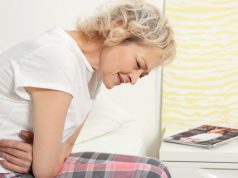Multiple healthy diet patterns are associated with reduced risk for incident diverticulitis among women
By Elana Gotkine HealthDay Reporter
TUESDAY, May 6, 2025 (HealthDay News) — Dietary intake of nuts, seeds, and corn is not associated with an increased risk for incident diverticulitis among women, according to a study published online May 6 in the Annals of Internal Medicine.
Trevor Barlowe, M.D., from the University of North Carolina at Chapel Hill, and colleagues examined whether select diets affect the risk for incident diverticulitis in women in a prospective cohort study conducted in the United States and Puerto Rico. Participants were aged 35 to 74 years at enrollment. Data were included for 29,916 women who responded to food frequency and diverticulitis questionnaires and had no history of inflammatory bowel disease, cancer, or diverticulitis.
During 415,103 person-years of follow-up, 1,531 cases of incident diverticulitis were identified. The researchers observed no association for intake of peanuts, nuts, seeds, or fresh fruits with edible seeds with incident diverticulitis. Compared with those in the lowest quartile, women in the highest quartile of healthy diets had a reduced risk for incident diverticulitis: the Dietary Approaches to Stop Hypertension diet, the Healthy Eating Index, the Alternative Healthy Eating Index, and the Alternative Mediterranean diet (adjusted hazard ratios [95 percent confidence intervals], 0.77 [0.65 to 0.90], 0.78 [0.66 to 0.91], 0.81 [0.69 to 0.95], and 0.91 [0.78 to 1.06], respectively).
“Our findings refute the widely held belief that dietary intake of particulate matter should be avoided to prevent diverticulitis,” the authors write.
Copyright © 2025 HealthDay. All rights reserved.








